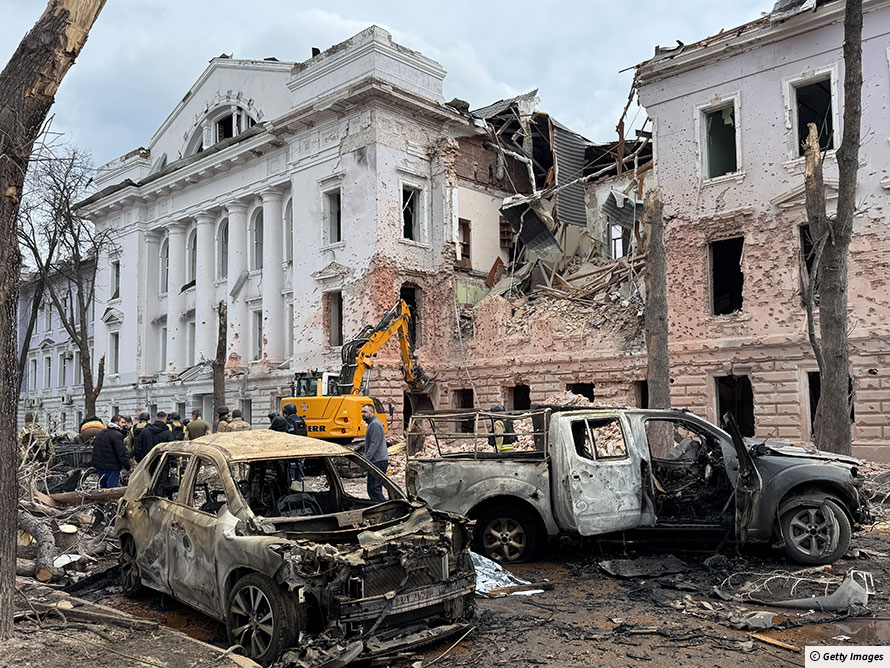Is Europe already at war? A Russian strike on Ukrainian civilians has horrified the continent. Some think it is time to accept we are all in the line of fire – and must respond.
Putin does not want peace, experts say
 Anguish: Ukraine’s President Zelensky has invited Donald Trump to come and see for himself the destruction wrought by Russia after Sunday’s ballistic missile attack that killed at least 34 people in Sumy (above).
Anguish: Ukraine’s President Zelensky has invited Donald Trump to come and see for himself the destruction wrought by Russia after Sunday’s ballistic missile attack that killed at least 34 people in Sumy (above). Glossary
Palm Sunday - The Christian feast falling on the Sunday before Easter. It celebrates Christ's entry into Jerusalem.
Sumy - A city in northeastern Ukraine, with a population of 256,000.
European Commission - The executive body of the EU, responsible for suggesting new EU laws and overseeing their implementation.
Vladimir Putin - Russia’s ruler since 2000. He is a strong opponent of the West.
North Korean - From North Korea, a country formed in 1945 when Japanese-occupied Korea was split between a Communist government in the north and a capitalist one in the south. Today it is extremely reclusive, and hostile to the West.
USSR - The United Socialist Soviet Republic, the USA’s main rival in the Cold War before it collapsed and broke up into a number of smaller states in 1991.
Soviet - Relating to the Soviet Union, a powerful group of communist republics, the biggest being Russia, that existed from 1922 to 1991.
Chechnya - A republic of Russia situated in the North Caucasus. It is home to indigenous Chechens, mostly of Muslim faith.
Georgia - A state in the southern USA. Also a country at the intersection of Europe and Asia.
Belarus - Belarus is an eastern European state that is a close ally of Russia. Run by Alexander Lukashenko, it is known as “the last dictatorship in Europe”.
Baltics - The three countries on the eastern coast of the Baltic Sea: Estonia, Latvia and Lithuania.
Isolationist - Preferring the policy of remaining separate from the affairs of other countries.
Sabotage - Deliberately ruin, destroy or obstruct something — especially to further your own ambitions.
Infrastructure - The basic systems and services that a country needs to keep it going.
